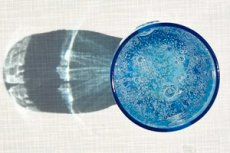Medical expert of the article
New publications
Water and breastfeeding: what kind of water can I drink?
Last reviewed: 04.07.2025

All iLive content is medically reviewed or fact checked to ensure as much factual accuracy as possible.
We have strict sourcing guidelines and only link to reputable media sites, academic research institutions and, whenever possible, medically peer reviewed studies. Note that the numbers in parentheses ([1], [2], etc.) are clickable links to these studies.
If you feel that any of our content is inaccurate, out-of-date, or otherwise questionable, please select it and press Ctrl + Enter.

Nutritionists, cosmetologists, doctors insist that a person should drink more water, and this is at least 2-2.5 liters per day, not including liquid dishes, coffee, tea, juices. With its help, metabolism, digestion, cardiac activity, and skin condition improve. Does this apply to a nursing woman? Not so long ago, it was believed that drinking plenty of fluids promotes lactation, is this true? [ 1 ]
How much water should nursing mothers drink?
It is reliably known that the hormone prolactin affects the production of breast milk, and its amount is directly proportional to the frequency of latching the baby to the breast, proper latching on to the nipple and sucking. Therefore, the statement about the dependence of the abundance of milk on the amount of liquid drunk has no basis. And yet it facilitates the flow of milk, and many women have noticed this. It is best for a woman to drink as needed during the feeding period, as much as she wants. Too much will increase the load on the excretory system, a deficiency, especially in the heat, can lead to dehydration. The best indicator in this case is the color of urine: dark with a sharp odor indicates a lack of fluid, light - about normal processes. An important question for a nursing mother is what to drink. [ 2 ]
Dill water
It is known that dill water has a healing property of relieving intestinal spasms and releasing gases. It also has an antimicrobial effect and improves digestion. That is why it is given to babies when they cry from bloating and abdominal pain. Women in the postpartum period also often suffer from similar symptoms. Dill water is credited with the property of increasing lactation and promoting milk secretion. In any case, the spicy plant from which the drug is prepared contains essential and fatty oils, vitamins A, C, group B, flavonoids, glycosides, and minerals that are useful for both women and children. What is popularly called dill has a scientific name of fennel. It prevents cardiovascular diseases, normalizes blood pressure, has a diuretic and expectorant effect. Such water is contraindicated for women with hypotension, since it contains a vasodilator.
How to make dill water?
Dill water is sold in pharmacies in bottles and the ratio of its components - fennel essential oil and purified water is 1:1000. But you can also make the potion yourself at home. To do this, you will need a teaspoon of seeds or 3 g of crushed fruits, which are poured with a glass of boiling water. After infusing for an hour, you can strain it and drink. A nursing mother should take the drink 30 minutes before feeding the baby, half a glass at a time.
Carbonated water
We know sweet carbonated drinks: lemonade, Coca-Cola, Sprite and others, and, in addition, mineral carbonated water. The first is not recommended not only for nursing mothers, but also for everyone else due to the high content of sugar, flavorings, and colorings. Mineral waters are rich in nutrients, vitamins, and microelements. Different compositions correspond to specific waters and are intended to treat certain pathologies of the digestive tract and other organs. During lactation, it is important to simply quench increased thirst. Mineral table water is suitable for daily use. To be able to drink it away from sources, carbon dioxide is used as a preservative. It is undesirable during breastfeeding, as it irritates the mucous membrane of the stomach, intestines, and can cause colic in a child. If you really want carbonated water, you need to limit its volume, and it is best to leave it in a glass for a while until the bubbles evaporate, and then drink it. [ 3 ], [ 4 ]
Raw water
Raw water is the best way to quench thirst, the culprit of which during breastfeeding is the hormone oxytocin - the more often you feed your child, the more it is produced. It does not disturb the water-salt balance, so it is suitable for daily consumption. The best water is artesian, which has not gone through the long path of a centralized water supply. Most of us do not have the opportunity to drink this. Chlorinated water flows from the taps, and sometimes it is not sufficiently disinfected and is unsafe in terms of epidemics. Therefore, the solution lies in purchasing bottled water, which is most often taken directly from sources, or filtered. [ 5 ] Boiled water is considered dead water, however, if a woman doubts the quality of raw water or has had a negative experience of its use, then it is best to boil it.

